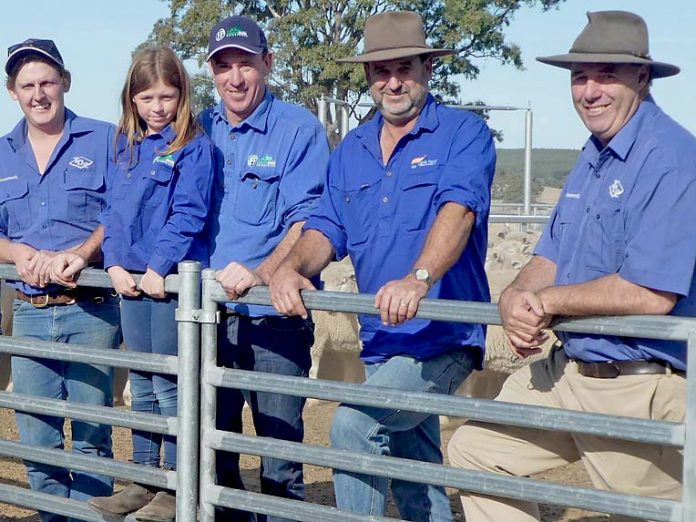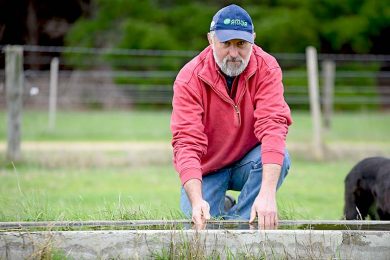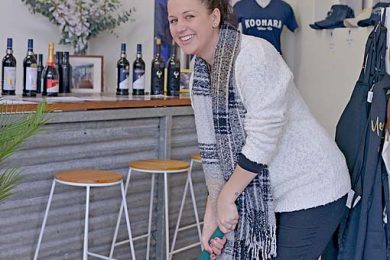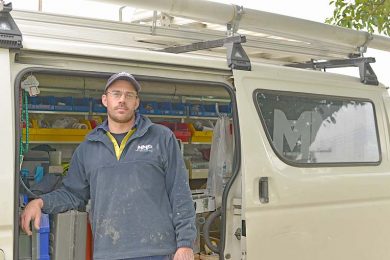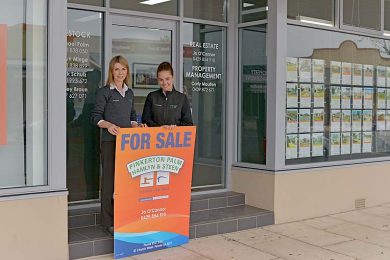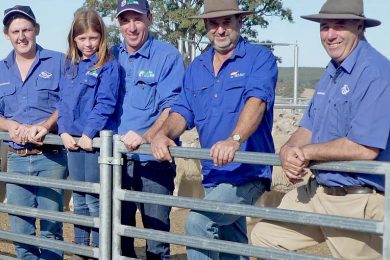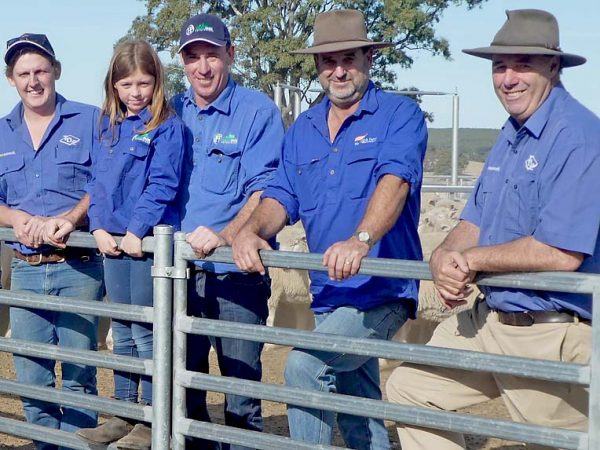
A SOUTH East producer has cemented their faith in the prime lamb industry, doubling its stud sheep flock earlier this month.
Situated just west of Penola, the 3000 acre Warrawindi Farms is home to herds of sheep and cattle including Limousins, East Fresians, Suffolks, Border Leicesters and Poll Dorsets.
In 2018 the growing enterprise purchased Casterton’s Haven Park East Fresian stud and less than a year later the two businesses have connected again.
This time Warrawindi has taken on Haven Park’s Poll Dorset stud, which has increased the company’s Poll Dorset interest by close to 100pc.
Warrawindi’s David Galpin said the investment came at the perfect time for both parties.
“We have had a Poll stud for the last 15 years or so,” he said.
“12 months ago we purchased the East Fresian stud from Haven Park and that has worked out really well for us so when we were looking to increase our numbers we knew their stud would complement our program well.
“They recently purchased two new properties and are increasing their workload so it came at a great time for both of us to purchase the stud.”
With around 1400 stud sheep and more than 2000 commercial ewes, the farming enterprise is now planning one of the state’s biggest sales.
“With around 800 ewes we will look at producing close to 12,000 lambs,” Mr Galpin said.
“Out of that we will have 300 or 350 top quality rams which is looking really great,” Mr Galpin said.
“The prime lamb industry is in a great place at the moment and we are in quite a safe production area.
“With that in mind, things are looking quite promising for at least the next 10 to 15 years – we are going to be in for a good run I think.”
This news comes as the State Government recently announced the removal of restrictions on purchasing stock outside of the state.
The change was announced last week in response to the need for farmers to boost flock numbers in the wake of drought conditions.
The government will remove the last Ovine Johne’s Disease movement barrier from July 1 in-line with the national disease management program and will make sheep trade between states easier.
Mr Galpin said the move will be highly beneficial for the state’s industry.
“It is great for the industry to free up trade between states,” he said.
“Previously it has made production here a bit more expensive but we are hopeful this may start to change.
“It all goes back to being a really positive time for the industry – sheep numbers have been down due to the drought but as that breaks people will start buying up stock to build their flock.
“This will be easier with the ability to purchase from wherever they choose.”
Primary Industries and Regional Development Minister Tim Whetstone said the government waned to work with livestock farmers to grow the number of sheep as fast as possible once the drought breaks.
“Without this reform, the state’s sheep and wool industry would be at a significant disadvantage to eastern states’ farmers who would be free to buy the cream of our flocks while South Australian farmers would have been shackled in trying to source from interstate,” he said.
Mr Whetstone said it was important producers continued to look for sheep that have been vaccinated against OJD, or vaccinate any stock they purchase.
Livestock SA president Joe Keynes said the industry body was pleased to see the stronger alignment in South Australia to the national management arrangements for the disease.
“We are aware that approved vaccinates and stock from areas with a low OJD risk prevalence will not only be in limited supply when seasonal conditions improve but will also increase in price,” Mr Keynes said.
“Freeing stock movements up will assist producers greatly as they start to recover from the recent dry conditions.
“As the National Sheep Health Declaration remains mandatory for all sheep movements into or within South Australia, producers will need to need to consider how to adapt their on-farm biosecurity and disease management strategies in line with these new arrangements.”

